Human
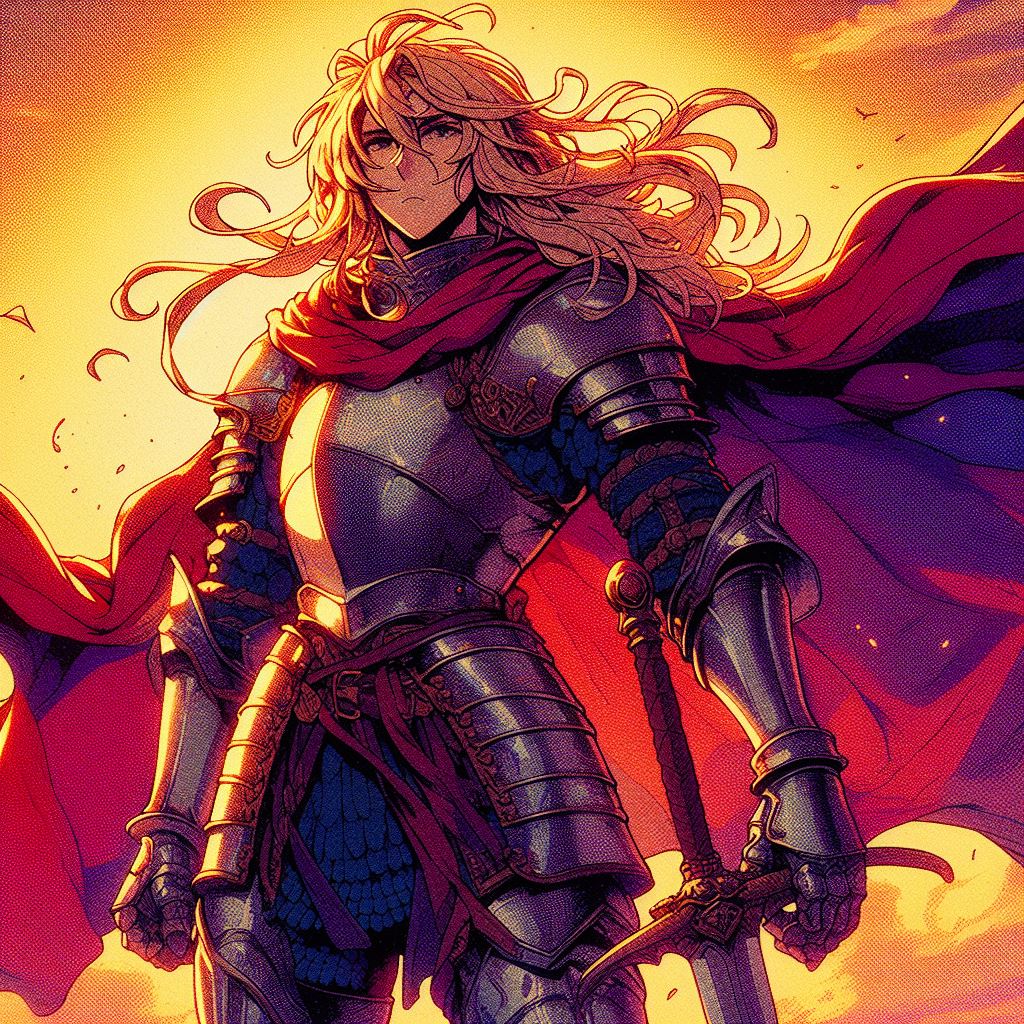
The most plentiful of the races, humans span the globe. Humans prefer to live in cities and will scorn natural living. It has been noted by other races that the humans act more like ants than anything else, they seem to be always looking to expand their great colonies they call cities. Great innovators these people use ingenuity and a natural doggedness to find success in everything. Though not collectively specialised and short lived the humans will devote their lives to individual pursuits. The most varied of the races humans come in all shapes and sizes lending to their individualistic ways. Human settlements are the most welcoming of other races.
Human Traits
It's hard to make generalizations about humans, but your human character has these traits.
Ability Score Increase. Your ability scores each increase by 1 .
Age. Humans reach adulthood i n their late teens and live less than a century.
Alignment. Humans tend toward no particular alignment. The best and the worst are found among them.
Size. Humans vary widely in height and build, from barely 5 feet to well over 6 feet tall. Regardless of your position in that range, your size is Medium.
Speed. Your base walking speed is 30 feet.
Languages. You can speak, read, and write Common and one extra language of your choice. Humans typically learn the languages of other peoples they deal with, including obscure dialects. They are fond of sprinkling their speech with words borrowed from other tongues: Orc curses, Elvish musical expressions, Dwarvish military phrases, and so on.
Feorlin

Feorlins can range from fully feline bipeds to indistinguishable from humans bar a single attribute such as whiskers. Feorlins generally prefer the comforts of the wilderness and will create primitive hamlet-like structures deep in the jungles. However, they also are deeply trusting of other races and can find themselves integrating into almost any race’s social structures. Less kind observers might call Feorlins naive or dumb but these people prefer to trust first and ask questions later. This trait often gets them into trouble and lends them to being used. Every race is favourable to Feorlins, especially after they interact with them for a while, they secrete a pheromone that subtlety implants itself in the recipient's brain.
Feorlin Traits
Age. Feorlins mature and age at about the same rate as humans.
Alignment. Feorlins tend toward good alignments.
Languages. You can speak, read, and write Common and Feorlin.
Feorlins are notable for their extreme sexual dimorphism. (Though sometimes you might find males and females with reverse traits its highly unlikely.)
Sexual Dimorphism:
Male Feorlin
Ability Score Increase. Your Constitution score increases by 2, and your Strength score increases by l.
Size. Male Feorlins are typically over 6 feet tall, with some standing over 7 feet. Your size is Medium.
Speed. Your base walking speed is 35 feet.
Darkvision. You can see in dim light within 60 feet of you as if it were bright light and in darkness as if it were dim light. You can't discern color in darkness, only shades of gray.
Claws. Your claws are natural weapons, which you can use to make unarmed strikes. If you hit with them, you can deal slashing damage equal to ld4 + your Strength modifier, instead of the bludgeoning damage normal for an unarmed strike.
Hunter's Instincts. You have proficiency in one of the following skills of your choice: Athletics, Intimidation,
Perception, or Survival.
Daunting Roar. As a bonus action, you can let out an especially menacing roar. Creatures of your choice within 10 feet of you that can hear you must succeed on a Wisdom saving throw or become frightened of you until the end of your next turn. The DC of the save equals 8 + your proficiency bonus + your Constitution modifier. Once you use this trait, you can't use it again until you finish a short or long rest.
Female Feorlin
Size. Female Feorlins are shorter on average than humans and relatively slender. Your size is Medium. Speed. Your base walking speed is 30 feet.
Darkvision. You have a cat's keen senses, especially in the dark. You can see in dim light within 60 feet of you as if it were bright light, and in darkness as if it were dim light. You can't discern color in darkness, only shades of gray.
Feline Agility. Your reflexes and agility allow you to move with a burst of speed. When you move on your tum in combat, you can double your speed until the end of the tum. Once you use this trait, you can't use it again until you move O feet on one of your turns.
Cat's Claws. Because of your claws, you have a climbing speed of 20 feet. In addition, your claws are natural weapons, which you can use to make unarmed strikes. If you hit with them, you deal slashing damage equal to 1d4 + your Strength modifier, instead of the bludgeoning damage normal for an unarmed strike.
Cat's Talent. You have proficiency in the Perception
and Stealth skills.
Dwarf
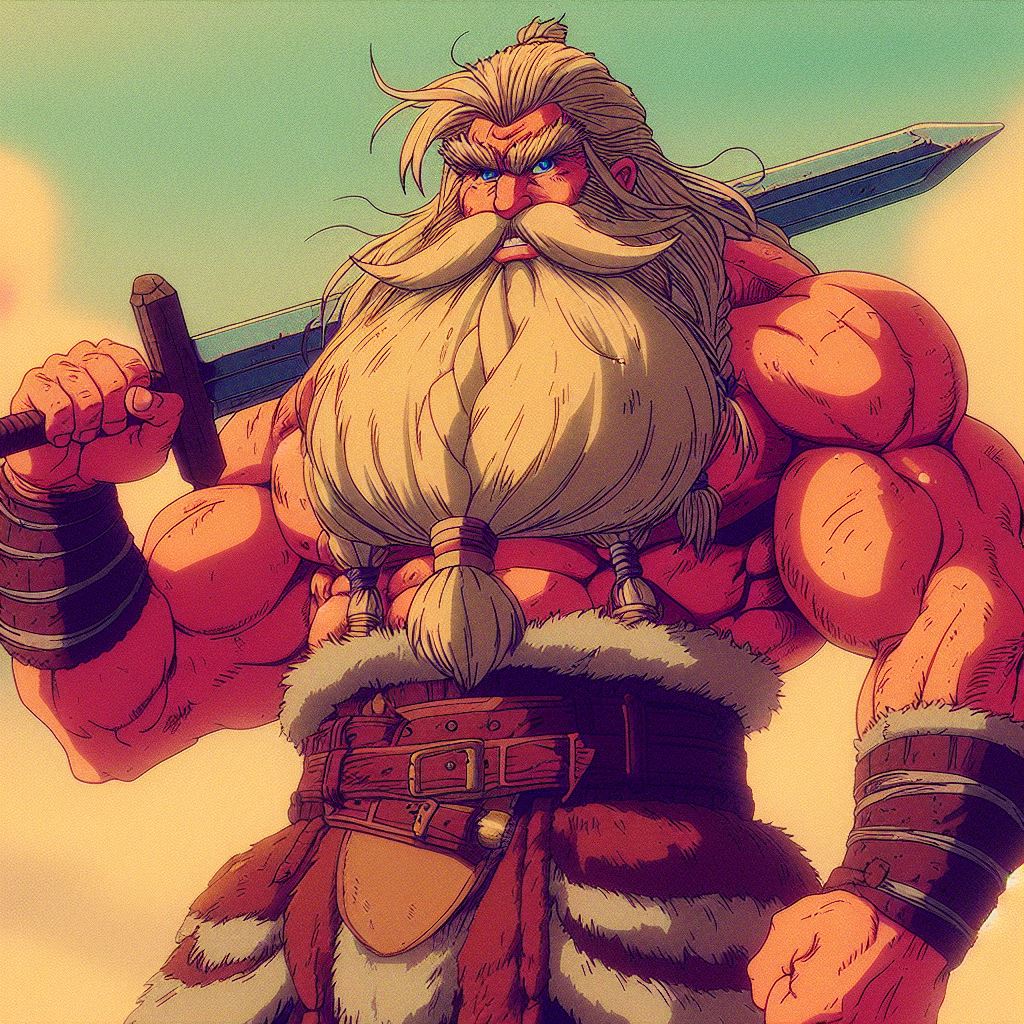
The dwarves prefer the cold sanctity of their strong mountain halls. Though short in stature these people make up for it in grit, strength and high alcohol tolerance. Though dwarves come across brash they just take a while longer than most to warm to outsiders. Great builders and inventors much like humans though these people prefer to build down rather than up. Their underground cities and mines can go for thousands of fathoms. Fiercely protective of their friends, dwarves have a deep sense of honour however are far from afraid of banter, called the most jovial of all the races by those who truly know them.
Dwarven Traits
Your dwarf character has an assortment of inborn abilities, part and parcel of dwarven nature.
Ability Score Increase. Your Constitution score increases by 2 .
Age. Dwarves mature at the same rate as humans, but they're considered young until they reach the age of 50. On average, they live about 350 years.
Alignment. Most dwarves are lawful, believing firmly in the benefits of a well-ordered society. They tend toward good as well, with a strong sense of fair play and a belief that everyone deserves to share in the benefits of a just order.
Size. Dwarves stand between 4 and 5 feet tall and average about 1 5 0 pounds. Your size is Medium.
Speed. Your base walking speed is 25 feet. Your speed is not reduced by wearing heavy armor.
Darkvision. Accustomed to life underground, you have superior vision in dark and dim conditions. You can see in dim light within 60 feet of you as if it were bright light, and in darkness as if it were dim light. You can't discern color in darkness, only shades of gray.
Dwarven Resilience. You have advantage on saving throws against poison, and you have resistance against poison damage.
Dwarven Combat Training. You have proficiency with the battleaxe, handaxe, light hammer, and warhammer.
Tool Proficiency. You gain proficiency with the artisan's tools of your choice: smith's tools, brewer's supplies, or mason's tools.
Stonecunning. Whenever you make an Intelligence (History) check related to the origin of stonework, you are considered proficient in the History skill and add double your proficiency bonus to the check, instead of your normal proficiency bonus.
Languages. You can speak, read, and write Common and Dwarvish. Dwarvish is full of hard consonants and guttural sounds, and those characteristics spill over into whatever other language a dwarf might speak.
Subraces:
High Dwarf
These dwarves prefer the tops of mountains, here they carve into the peaks to build their halls and have great bushy beards and long hairstyles to keep themselves warm in the cold weather.
Ability Score Increase. Your Wisdom score increases by 1 .
Dwarven Toughness. Your hit point maximum increases by 1, and it increases by 1 every time you gain a level.
Low Dwarf
Contrastly these dwarves dig deep pits in the earth and build their homes deep under the crust. Seldom seen above ground, Low Dwarves are hairless and have much more experience with that which dwells beneath.
Ability Score Increase. Your Strength score increases by 2 .
Dwarven Armor Training. You have proficiency with light and medium armor.
Elf

Hidden deep within their shining white enclaves the Elves seem to wish they didn’t exist at all. Though not as primitive as the Feorlins the elves take much greater care not to disturb nature. It has not gone unnoticed that elven settlements abundant with food will let neighbouring villages starve in times of famine without a second thought. Deeply reclusive, Elves are seldom seen in the settlements of others. They prefer to bury themselves in metaphysical study, illusionary magic and high art. It has been said of the Elves that they are looking for a way to break mundanity and collectively escape the firmament. As a whole they are extremely intelligent but their detachment from reality has meant their bodies are weak and brittle. Most non-magical combat for example can prove much too strenuous for an Elf.
Elven Traits
Your elf character has a variety of natural abilities, the result of thousands of years of elven refinement.
Ability Score Increase. Your Dexterity score increases by 2 .
Age. Although elves reach physical maturity at about the same age as humans, the elven understanding of adulthood goes beyond physical growth to encompass worldly experience. An elf typically claims adulthood and an adult name around the age of 100 and can live to be 750 years old.
Alignment. Elves love freedom, variety, and selfexpression, so they lean strongly toward the gentler aspects of chaos. They value and protect others' freedom as well as their own, and they are more often good than not. The drow are an exception; their exile into the Underdark has made them vicious and dangerous. Drow are more often evil than not.
Size. Elves range from under 5 to over 6 feet tall and have slender builds. Your size is Medium.
Speed. Your base walking speed is 30 feet.
Darkvision. Accustomed to twilit forests and the night sky, you have superior vision in dark and dim conditions. You can see in dim light within 60 feet of you as if it were bright light, and in darkness as if it were dim light. You can't discern color in darkness, only shades of gray.
Keen Senses. You have proficiency in the Perception skill.
Fey Ancestry. You have advantage on saving throws against being charmed, and magic can't put you to sleep.
Trance. Elves don't need to sleep. Instead, they meditate deeply, remaining semiconscious, for 4 hours a day. (The Common word for such meditation is "trance.") While meditating, you can dream after a fashion; such dreams are actually mental exercises that have become reflexive through years of practice. After resting in this way, you gain the same benefit that a human does from 8 hours of sleep.
Languages. You can speak, read, and write Common and Elvish. Elvish is fluid, with subtle intonations and intricate grammar. Elven literature is rich and varied, and their songs and poems are famous among other races. Many bards learn their language so they can add Elvish ballads to their repertoires.
Subraces:
White Elf
White Elves have devoted themselves to the apollonian way of life and seek logic and the meaning behind life. They build giant ivory learning complexes where they spend all day searching for knowledge and beauty so that they may escape the mundane.
Ability Score Increase. Your Intelligence score increases by 1.
White Weapon Training. You have proficiency with the longsword, shortsword, shortbow, and longbow.
Cantrip. You know one cantrip of your choice from the Scholar spell list. Intelligence is your spellcasting ability for it.
Extra Language. You can speak, read, and write one extra language of your choice.
Black Elf
White Elves have devoted themselves to the dionysian way of life and dismiss logic and the meaning behind life. They do not build and instead insert themselves in the settlements of others where they spend all day searching for pleasure and beauty so that they may escape the mundane.
Ability Score Increase. Your Charisma score increases by l .
Superior Darkvision. Your darkvision has a radius of 1 2 0 feet.
Sunlight Sensitivity. You have disadvantage on attack rolls and on Wisdom (Perception) checks that rely on sight when you, the target of your attack, or whatever you are trying to perceive is in direct sunlight.
Chaos Magic. You know the dancing lights cantrip. When you reach 3rd level, you can cast the faerie fire spell once with this trait and regain the ability to do so when you finish a long rest. When you reach 5th level, you can cast the darkness spell once with this trait and regain the ability to do so when you finish a long rest. Charisma is your spellcasting ability for these spells.
Black Weapon Training. You have proficiency with rapiers, shortswords, and hand crossbows.
Goblin
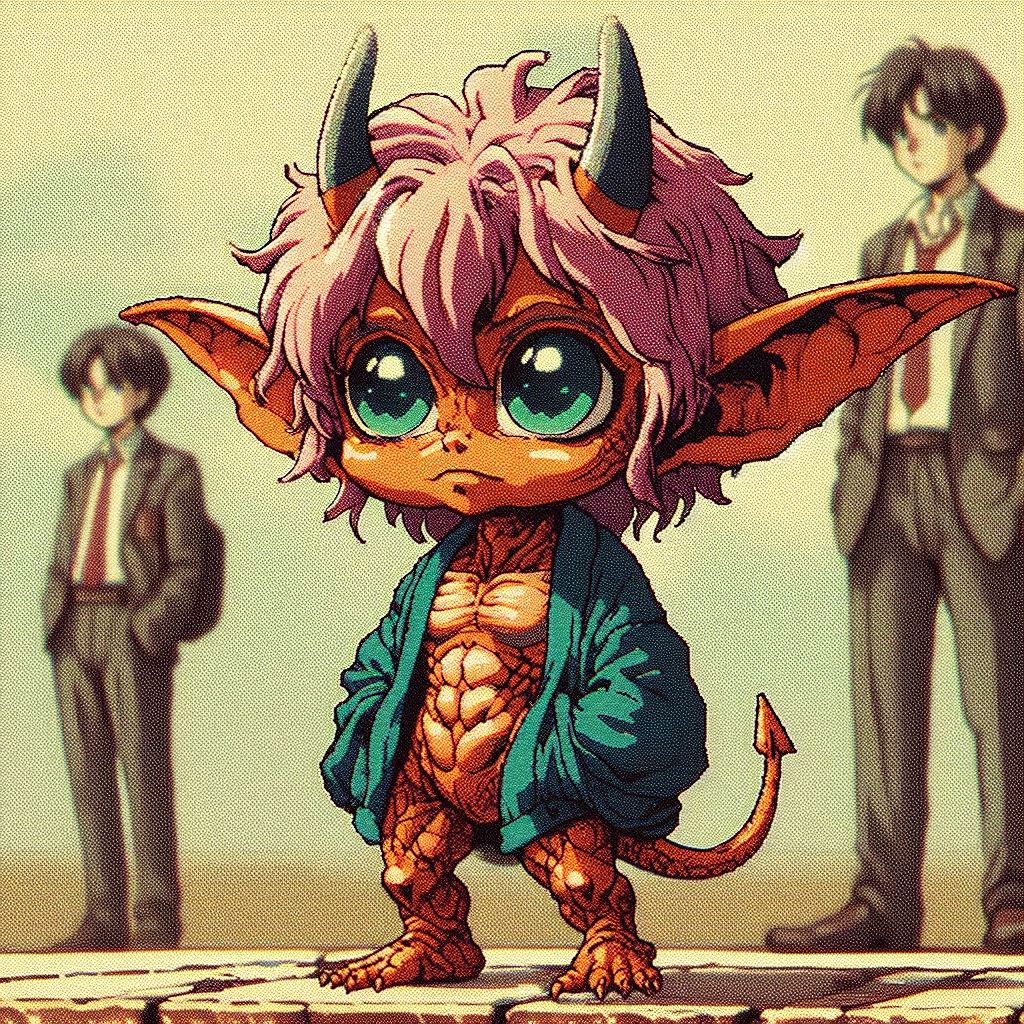
The most recent race in the world. Born from the run-off sludge produced by the Luci-i’s gnode factories, most see Goblins as monsters rather than people. The smallest of all the races and mostly excluded from society, they build their homes in the forgotten areas of other races, such as sewers, plague pits and in the holes in between walls. Naturally extremely resistant to disease they are a hardy people able to live in some of the most inhospitable conditions. Goblins make do with what they have, resourceful Goblins can make almost anything out of seemingly nothing. Due to their provenance Goblins are rarely seen outside of the most technologically advanced cities and are quite unfamiliar with the wild.
Goblin Traits
Your goblin character has certain characteristics in common with all other goblins.
Ability Score Increase. Your Intelligence score increases by 2.
Age. Goblins mature at a much quicker rate humans do, and most are expected to settle down into an adult life by around age 4. They can live 20 to almost 25 years.
Alignment. Goblins are most often neutral. Those who tend toward law are sages, engineers, researchers,
scholars, investigators, or inventors. Those who tend toward chaos are minstrels, tricksters, wanderers, or fanciful jewelers. Goblins are good-hearted, and even the tricksters among them are more playful than vicious.
Size. Goblins are between 3 and 4 feet tall and average about 40 pounds. Your size is Small.
Speed. Your base walking speed is 25 feet.
Darkvision. Accustomed to life underground, you have superior vision in dark and dim conditions. You can see in dim light within 60 feet of you as if it were bright light, and in darkness as if it were dim light. You can't discern color in darkness, only shades of gray.
Goblin Cunning. You have advantage on all Intelligence, Wisdom, and Charisma saving throws against magic.
Languages. You can speak, read, and write Common and Goblin. The Goblin language, which uses the Dwarvish script, is renowned for its technical treatises and its catalogs of knowledge about the natural world.
Subraces:
Sewer Goblin
As a Sewer goblin, you have a natural knack for illusion and inherent quickness and stealth. Sewer goblins are rare and secretive. They gather in hidden communities in sewer systems under towns and cities, using illusions and trickery to conceal themselves from threats or to mask their escape should they be detected. Sewer goblins tend to be secretive, they hide from any who may harm them. These goblins also befriend rats and rely on them for information about threats that might prowl their tunnels.
Ability Score Increase. Your Dexterity score increases by 1 .
Natural Illusionist. You know the minor illusion cantrip. Intelligence is your spellcasting ability for it.
Speak with Small Beasts. Through sounds and gestures, you can communicate simple ideas with Small
or smaller beasts. Forest goblins love animals and often keep squirrels, badgers, rabbits, moles, woodpeckers, and other creatures as beloved pets.
Factory Goblin
As a factory goblin, you have a natural inventiveness and hardiness beyond that of other goblins.
Ability Score Increase. Your Constitution score increases by 1.
Artificer's Lore. Whenever you make an Intelligence (History) check related to magic items, alchemical objects, or technological devices, you can add twice your proficiency bonus, instead of any proficiency bonus you normally apply.
Tinker. You have proficiency with artisan's tools (tinker's tools). Using those tools, you can spend 1 hour and 1 0 gp worth of materials to construct a Tiny clockwork device (AC 5, 1 hp). The device ceases to function after 24 hours (unless you spend 1 hour repairing it to keep the device functioning), or when you use your action to dismantle it; at that time, you can reclaim the materials used to create it. You can have up to three such devices active at a time. When you create a device, choose one of the following options:
Clockwork Toy. This toy is a clockwork animal, monster, or person, such as a frog, mouse, bird, dragon, or soldier. When placed on the ground, the toy moves 5 feet across the ground on each of your turns in a random direction. It makes noises as appropriate to the creature it represents.
Fire Starter. The device produces a miniature flame, which you can use to light a candle, torch, or campfire. Using the device requires your action.
Music Box. When opened, this music box plays a single song at a moderate volume. The box stops playing when it reaches the song's end or when it is closed.
Orc
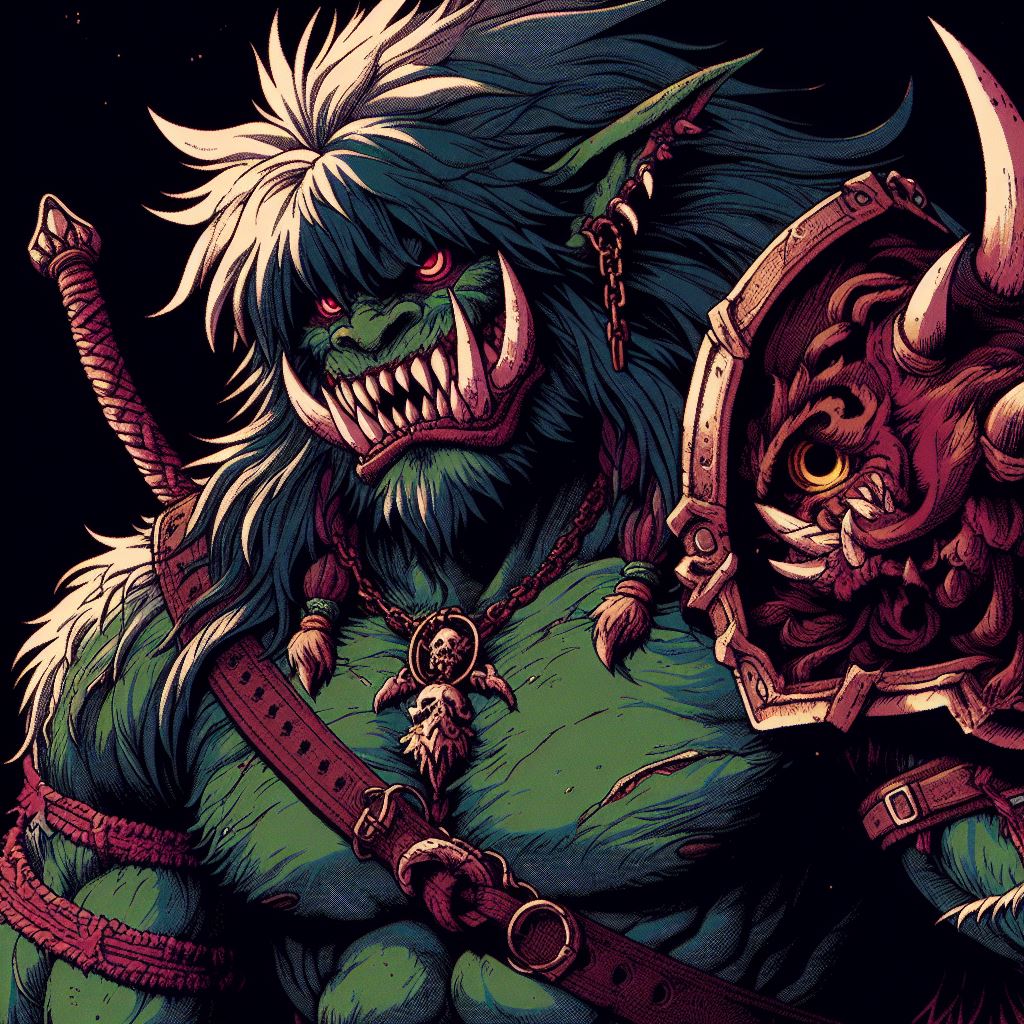
The most feared of all the races Orcs would prefer you not to think of them as anything other than monsters. These people know little other than hate. As reclusive as the Elves but not for similar reasons they are extremely xenophobic and will seek to kill any who wander into an Orc camp. Though behind their ferocity lies a deep care for their family and tribe. An Orc is entirely capable of making a valuable member of any adventuring party if they believe them to be their tribe. Many others may attack Orcs on sight after too many run-ins with marauding bands. The Orcs are strong, loyal and murderous.
Orc Traits
Your character has certain traits deriving from your orc ancestry.
Ability Score Increase. Your Strength score increases by 2, and your Constitution score increases by 1 .
Age. Orcs mature a little faster than humans, reaching adulthood around age 14. They age noticeably faster and rarely live longer than 75 years.
Alignment. Orcs inherit a tendency toward lawful from their orc parents and are not strongly inclined toward good. Only those Orcs who have lives most of their lives away from Orcish culture will be anything but evil.
Size. Orcs are larger and bulkier than humans, and they range from 5 to well over 6 feet tall. Your size is Medium.
Speed. Your base walking speed is 30 feet.
Darkvision. Thanks to your ore blood, you have superior vision in dark and dim conditions. You can see in dim light within 60 feet of you as if it were bright light, and in darkness as if it were dim light. You can't discern color in darkness, only shades of gray.
Menacing. You gain proficiency in the Intimidation skill.
Relentless Endurance. When you are reduced to 0 hit points but not killed outright, you can drop to 1 hit point instead. You can't use this feature again until you finish a long rest.
Savage Attacks. When you score a critical hit with a melee weapon attack, you can roll one of the weapon's damage dice one additional time and add it to the extra damage of the critical hit.
Languages. You can speak, read, and write Common and Orc. Ore is a harsh, grating language with hard consonants. It has no script of its own but is written in the
Smallfolk

Nestled in the serene countryside, Smallfolk epitomise warmth and kindness. Despite their stature, they possess boundless hearts and resilient spirits. Renowned for their welcoming nature, they greet all with open arms, sharing stories of their land. Their villages exude camaraderie and celebrate life's simple pleasures. Smallfolk live in harmony with nature, finding wisdom in simplicity. Beneath their peaceful demeanour lies a fierce determination to protect their community. In a turbulent world, they offer hope, reminding others that kindness conquers all. Their unwavering spirit and sense of unity make them a beacon of light in times of darkness, inspiring all who cross their path. For the Smallfolk it is the simple pleasures in life, a verdant field, a delicious sausage or a quiet sunday afternoon. Smallfolk abhor adventure and want nothing of the sort, thank you very much.
Smallfolk Traits
The comforts of Smallfolk life have afforded you these traits:
Ability Score Increase. Your Dexterity score increases by 2 .
Age. A halfting reaches adulthood at the age of 20 and generally lives into the middle of his or her second century.
Alignment. Most halftings are lawful good. As a rule, they are good-hearted and kind, hate to see others in pain, and have no tolerance for oppression. They are also very orderly and traditional, leaning heavily on the support of their community and the comfort of their old ways.
Size. Halftings average about 3 feet tall and weigh about 40 pounds. Your size is Small.
Speed. Your base walking speed is 25 feet.
Lucky. When you roll a 1 on the d20 for an attack roll, ability check, or saving throw, you can reroll the die and must use the new roll.
Brave. You have advantage on saving throws against being frightened.
Small Nimbleness. You can move through the space of any creature that is of a size larger than yours.
Languages. You can speak, read, and write Common.
Subraces:
Hopling
More slender than other Smallfolk, the Hoplings are more affable and welcoming to outsiders than their cousins, though this may sometimes get them into trouble.
Ability Score Increase. Your Charisma score increases by 1.
Naturally Stealthy. You can attempt to hide even when you are obscured only by a creature that is at least one size larger than you.
Maltling
As a Maltling, you're hardier than average and have some resistance to poison. Some say that stouts have dwarven blood.
Ability Score Increase. Your Constitution score increases by 1.
Stout Resilience. You have advantage on saving throws against poison, and you have resistance against poison damage.
Gnodic

From the crystalline south the Gnodics are a tragic race of humans that survived the southern gnode storms. Their forms have been twisted by the gnode, their skin forming hard glass like structures and growing multi-coloured protrusions. They are rarely seen outside the south if some come far north enough they are usually only in the area for trade. They have a greater understanding of the gods than all the other races due to their body binding with their divine essence. Sometimes Gnodics experience flashes of ancient memory or prophecy from the remains of the GodHead. Though freakish to other races, Gnodics have found beauty in their new forms and pride. Their divine origin has given them a belief that they are the most perfect beings on the planet and so can often be quite dismissive of all the other races.
Gnodic Traits
Gnodics recieved certain abilities due to the gnode binding with their bodies.
Ability Score Increase. Your Intelligence score increases by 1, and your Charisma score increases by 2 .
Age. Gnodics mature at the same rate as humans but live a few years shorter.
Alignment. Gnodics have the many faces of the GodHead corsing through their bodies and so have no inclination between good or evil, however they do have a strong affinity for chaos.
Size. Tieflings are about the same size and build as
humans. Your size is Medium.
Speed. Your base walking speed is 30 feet.
Darkvision. Thanks to your gnode riddled body, you have superior vision in dark and dim conditions. You can see in dim light within 60 feet of you as if it were bright light, and in darkness as if it were dim light. You can't discern color in darkness, only shades of gray.
Crystaline Resistance. You have resistance to fire damage.
GodHead connection. Once every long rest you may roll a d20 and the DM may grant you a vision of history or prophecy.
Languages. You can speak, read, and write Common.
Lizardmen

The swamps of the world are populated by the Lizardmen. They make their homes out of bundles of twigs and mud under the roots of great mangrove trees. A highly religious people, they worship the Great Algae Mother, a now long distant figure who was said to have drowned in a swamp and from her rotting course a thousand eggs were spawned. Lizardmen span from Saurens to Skinks and have a primitive society of might makes right. They are fond of a certain plant that grows in the swamps that they smoke in long pipes. It would seem to outsiders that they have no great civilisational goal or achievements but to the Lizardmen they are simply resting as they believe that one day they will inherit the world once all the other races have gone away, then they shall become great.
Lizardmen Traits
Your lizardfolk character has the following racial traits.
Ability Score Increase. Your Wisdom score increases by 1.
Age. Lizardfolk reach maturity arqund age 14 and rarely live longer than 60 years.
Alignment. Most lizardfolk are neutral. They see the world as a place of predators and prey, where life and death are natural processes. They wish only to survive, and prefer to leave other creatures to their own devices.
Hold Breath. You can hold your breath for up to 15
Speed. Your base walking speed is 30 feet, and you have a swimming speed of 30 feet.
Bite. Your fanged maw is a natural weapon, which you can use to make unarmed strikes. If you hit with it, you deal piercing damage equal to 1d6 + your Strength modifier, instead of the bludgeoning damage normal for an unarmed strike.
Languages. You can speak, read, and write Common and Lizardic.
Swamp Resilience. You have advantage on saving throws against poison, and you have resistance against poison damage.
Subraces:
Skink
Ability Score Increase. Your Dexterity score increases by 2
Size. Skinks are much smaller than humans standing at about a maximum of 4 feet tall and averaging almost 60 pounds.
Speed. Your base walking speed is 35 feet.
Cunning Artisan. As part of a short rest, you can harvest bone and hide from a slain beast, construct, dragon, monstrosity, or plant creature of size Small or larger to create one of the following items: a shield, a club, a javelin, or 1d4 darts or blowgun needles. To use this trait, you need a blade, such as a dagger, or appropriate artisan's tools, such as leatherworker's tools.
Hunter's Lore. You gain proficiency with two of the following skills of your choice: Animal Handling, Nature, Perception, Stealth, and Survival.
Slippery Skin. Having lived the water for most of your life your skin has a constant film over it that can sometimes cause incoming weapons to miss increasing your AC by +1.
Sauren
Ability Score Increase. Your Constitution score increases by 2, and your Strength score increases by 1 .
Size. Dragonborn are taller and heavier than humans, standing well over 6 feet tall and averaging almost 250 pounds. Your size is Medium.
Speed. Your base walking speed is 25 feet.
Dense. You have advantage on Constitution checks.
Physicality. You are proficient in the Athletics skill.
Powerful Build. You count as one size bigger when determining your carrying capacity, and the weight you can push, drag, or lift.
Tail. You have advantage on Athletic and Acrobatics checks related to balance or stability. As a bonus action, you can make a tail attack. This attack has the finesse trait, and deals 1d4 bludgeoning damage. You do not add your ability score damage to this attack until you reach character level 10.
Classes
Apollonian Mage

High and haughty these are people of the faith. Taught from scripture disseminated by the White Elves they use the apollonian gnode to shape the world for the better. Though they might not seem like great fighters on the surface these are masters of battle. They use the might of their magic to turn the tide if that is through support of their friends, trickery of their foes or dealing plain damage. These mages attempt to quell any chaos in the world and abhor evil. These mages believe that man are the artists and their purpose on earth is to shape the chaos into order. Apollonian Mages, fond of order, early in their training pick one of the fourteen Archetypes each represent different faces of the almighty GodHead.
Class Features
As an apollonian mage, you gain the following class features:
Hit Points:
Hit Dice: 1d8 per apollonian mage level
Hit Points at 1st Level: 8 + your Constitution modifier
Hit Points at Higher Levels: 1d8 (or 5) + your Constitution modifier per apollonian mage level after 1st
Proficiencies:
Armour: Light armor, medium armor, shields
Weapons: Simple weapons
Tools: None
Saving Throws: Wisdom, Charisma
Skills: Choose two from History, Insight, Medicine, Persuasion, and Religion
Equipment:
You start with the following equipment, in addition to the equipment granted by your background:
• (a) a mace or (b) a warhammer (if proficient)
• (a) scale mail, (b) leather armor, or (c) chain mail (if
proficient)
• (a) a light crossbow and 20 bolts or (b) any simple
weapon
• (a) a priest's pack or (b) an explorer's pack
• A shield and a holy symbol
Spellcasting:
As a conduit for divine power, you can cast apollonian spells.
Cantrips:
At 1st level, you know three cantrips of your choice from the apollonian spell list. You learn additional apollonian cantrips of your choice at higher levels.
Preparing and Casting Spells:
The Apollonian Mage table shows how many spell slots you have to cast your apollonian spells of 1st level and higher. To cast one of these spells, you must expend a slot of the spell's level or higher. You regain all expended spell slots when you finish a long rest. You prepare the list of apollonian spells that are available for you to cast, choosing from the apollonian spells list. When you do so, choose a number of apollonian spells equal to your Wisdom modifier + your cleric level (minimum of one spell). The spells must be of a level for which you have spell slots. For example, if you are a 3rd-level apollonian mage, you have four 1st-level and two 2nd-level spell slots. With a Wisdom of 16, your list of prepared spells can include six spells of 1st or 2nd level, in any combination. If you prepare the 1 st-level spell cure wounds, you can cast it using a 1 st-level or 2nd-level slot. Casting the spell doesn't remove it from your list of prepared spells. You can change your list of prepared spells when you finish a long rest. Preparing a new list of apollonian spells requires time spent in prayer and meditation: at least 1 minute per spell level for each spell on your list.
Spellcasting Ability:
Wisdom is your spellcasting ability for your apollonian spells. The power of your spells comes from your devotion to your archetype. You use your Wisdom whenever an apollonian spell refers to your spellcasting ability. In addition, you use your Wisdom modifier when setting the saving throw DC for a cleric spell you cast and when making an attack roll with one.
Spell save DC = 8 + your proficiency bonus + your Wisdom modifier
Spell attack modifier = your proficiency bonus + your Wisdom modifier
Ritual Casting:
You can cast an apollonian spell as a ritual if that spell has the ritual tag and you have the spell prepared.
Spellcasting Focus:
You can use a holy symbol as a spellcasting focus for your apollonian spells.
Channel Divinity:
At 2nd level, you gain the ability to channel divine energy directly from the GodHead, using that energy to fuel magical effects. You start with two such effects: Turn Undead and an effect determined by your archetype. Some archetypes grant you additional effects as you advance in levels, as noted in the archetype description. When you use your Channel Divinity, you choose which effect to create. You must then finish a short or long rest to use your Channel Divinity again. Some Channel Divinity effects require saving throws. When you use such an effect from this class, the DC equals your cleric spell save DC. Beginning at 6th level, you can use your Channel Divinity twice between rests, and beginning at 18th level, you can use it three times between rests. When you finish a short or long rest, you regain your expended uses.
Channel Divinity: Turn Undead:
As an action, you present your holy symbol and speak a prayer censuring the undead. Each undead that can see or hear you within 30 feet of you must make a Wisdom saving throw. If the creature fails its saving throw, it is turned for 1 minute or until it takes any damage. A turned creature must spend its turns trying to move as far away from you as it can, and it can't willingly move to a space within 30 feet of you. It also can't take reactions. For its action, it can use only the Dash action or try to escape from an effect that prevents it from moving. If there's nowhere to move, the creature can use the Dodge action.
Ability Score Improvement:
When you reach 4th level, and again a t 8th, 1 2th, 16th, and 19th level, you can increase one ability score of your choice by 2, or you can increase two ability scores of your choice by 1. As normal, you can't increase an ability score above 20 using this feature.
Destroy Undead:
Starting at 5th level, when an undead fails its saving throw against your Turn Undead feature, the creature is instantly destroyed if its challenge rating is at or below a certain threshold, as shown in the Destroy Undead table.
| Cleric Level | Destroys Undead of CR |
| 5th | 1/2 or lower |
| 8th | 1 or lower |
| 11th | 2 or lower |
| 14th | 3 or lower |
| 17th | 4 or lower |
Divine Intervention:
Beginning at 10th level, you can call on the GodHead to intervene on your behalf when your need is great.
Imploring your deity's aid requires you to use your action. Describe the assistance you seek, and roll percentile dice. If you roll a number equal to or lower than your cleric level, your deity intervenes. The DM
chooses the nature of the intervention; the effect of any apollonian spells or archetype spell would be appropriate. If your deity intervenes, you can't use this feature again for 7 days. Otherwise, you can use it again after you finish a long rest. At 20th level, your call for intervention suceeds automatically, no roll required.
Subclasses:
- The Librarian: Locked away in a tower somewhere the mage finds divine solitude through books.
- The Nihilist: The only logical conclusion to life is to end it swiftly.
- The Artist: Through the craft of the mage may the world be ordered.
- The Undertaker: A mind in two worlds, using the power of death against your opponents and staving it from your friends.
- The Learned: A life spent in the pursuit of knowledge has made you a well rounded individual.
- The Healer: : Devoted to life and never letting it end, even to extremes.
- The Divine: Blinding perfection.
- The Naturalist:The entropy of nature is true order.
- The Lord: Carefully considered instruction of others, only a trained mind can lead.
- The Diplomat: Conflict between others is a great source of entropy.
- The Fury: Purity in destruction.
- The Trickster: He who can even trick himself into being uneffected by life's tragedy.
- The Dreamer: In the dream state we can become our own GodHeads.
- The Warrior: Man's most divine art is that of violently shaping the world with his fury.
Dionysian Mage
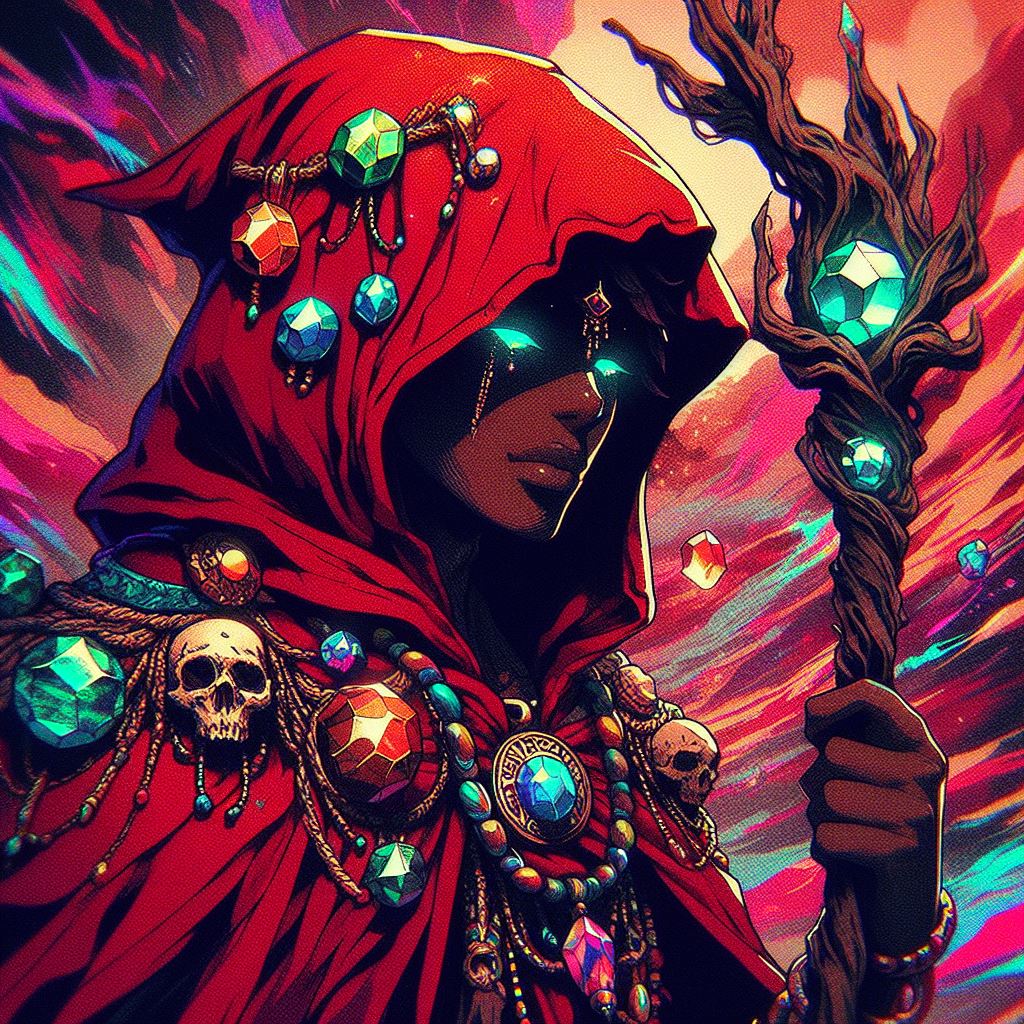
Wild and free-spirited, the Dionysian mages revel in the ecstasy of their magical craft. Influenced by teachings passed down from the Black Elves, they harness chaotic Dionysian gnode to infuse the world with vitality and spontaneity. While they may not appear as disciplined as their Apollonian counterparts, these mages are adept in the art of combat, using their magic to unleash unpredictable forces upon the battlefield. Vast ingestion of entropic gnode have addled many a mage’s mind and they can often find themselves enthralled by demonic beings and schizophrenic offshoots of the dying divine mind. Any of these could have destroyed a promising young mage’s career and driven them into the madness of everlasting ecstasy.
Class Features
As an dionysian mage, you gain the following class features:
Hit Points:
Hit Dice: 1d8 per dionysian mage level
Hit Points at 1st Level: 8 + your Constitution modifier
Hit Points at Higher Levels: 1d8 (or 5) + your Constitution modifier per dionysian mage level after 1st
Armor: Light armor
Weapons: Simple weapons
Tools: None
Saving Throws: Wisdom, Charisma
Skills: Choose two skills from Arcana, Deception, H istory, Intimidation, Investigation, Nature, and Religion
Equipment:
You start with the following equipment, in addition to the equipment granted by your background:
• (a) a light crossbow and 20 bolts or (b) any simple
weapon
• (a) a component pouch or (b) an arcane focus
• (a) a scholar's pack or (b) a dungeoneer's pack
• Leather armor, any simple weapon, and two daggers
Spellcasting:
As a conduit for divine power, you can cast dionysian spells.
Cantrips:
You know two cantrips of your choice from the dionysian spell list. You learn additional dionysian cantrips of your choice at higher levels.
Preparing and Casting Spells:
The Dionysian Mage table shows how many spell slots you have to cast your dionysian spells of 1st through 5th level. The table also shows what the level of those slots is; all of these spell slots are the same level. To cast one of your dionysian spells of 1st through 5th level, you must expend a spell slot. You regain all expended Pact Magic spell slots when you finish a short or long rest. For example, when you are 5th level, you have two 3rd-level spell slots. To cast the 1 st-level spell witch bolt, you must spend one of those slots, and you cast it as a 3rd-level spell.
Spells Known 1st Level and Higher:
At 1st level, you know two 1st-level spells of your choice from the dionysian spell list. The Spells Known column of the Dionysian Mage table shows when you learn more dionysian spells of your choice of 1st level and higher. A spell you choose must be of a level no higher than what's shown in the table's Slot Level column for your level. When you reach 6th level, for example, you learn a new dionysian spell, which can be 1st, 2nd, or 3rd level. Additionally, when you gain a level in this class, you can choose one of the dionysian spells you know and replace it with another spell from the dionysian spells list, which also must be of a level for which you have spell slots.
Spellcasting Ability:
Charisma is your spellcasting ability for your dionysian spells, so you use your Charisma whenever a spell refers to your spellcasting ability. In addition, you use your Charisma modifier when setting the saving throw DC for a dionysian spell you cast and when making an attack roll with one.
Spell save DC = 8 + your proficiency bonus + your Charisma modifier
Spell attack modifier = your proficiency bonus + your Charisma modifier
Spellcasting Focus:
You can use an arcane focus as a spellcasting focus for your dionysian spells.
Eldritch Invocations:
In your study of occult lore, you have unearthed eldritch invocations, fragments of forbidden knowledge that imbue you with an abiding magical ability. At 2nd level, you gain two eldritch invocations of your choice. Your invocation options are detailed at the end of the class description. When you gain certain dionysian levels, you gain additional invocations of your choice. Additionally, when you gain a level in this class, you can choose one of the invocations you know and replace it with another invocation that you could learn at that level.
Pact Boon:
At 3rd level, the GodHead bestows a gift upon you for your loyal service. You gain one of the following features of your choice:
Pact of the Chain:
You learn the find familiar spell and can cast it as a ritual. The spell doesn't count against your number of
spells known. When you cast the spell, you can choose one of the normal forms for your familiar or one of the following special forms: imp, pseudodragon, quasit, or sprite. Additionally, when you take the Attack action, you can forgo one of your own attacks to allow your familiar to make one attack of its own with its reaction.
Pact of the Blade:
You can use your action to create a pact weapon in your empty hand. You can choose the form that this melee weapon takes each time you create it (see chapter 5 for weapon options). You are proficient with it while you wield it. This weapon counts as magical for the purpose of overcoming resistance and immunity to nonmagical attacks and damage. Your pact weapon disappears if i t i s more than 5 feet away from you for 1 minute or more. It also disappears if you use this feature again, if you dismiss the weapon (no action required), or if you die. You can transform one magic weapon into your pact weapon by performing a special ritual while you hold the weapon. You perform the ritual over the course of 1 hour, which can be done during a short rest. You can then dismiss the weapon, shunting it into an extradimensional space, and it appears whenever you create your pact weapon thereafter. You can't affect an artifact or a sentient weapon in this way. The weapon ceases being your pact weapon if you die, if you perform the 1-hour ritual on a different weapon, or if you use a 1-hour ritual to break your bond to it. The weapon appears at your feet if it is in the extradimensional space when the bond breaks.
Pact of the Tome:
Your patron gives you a grimoire called a Book of Shadows. When you gain this feature, choose three cantrips from any class's spell list (the three needn't be from the same list). While the book is on your person, you can cast those cantrips at will. They don't count against your number of cantrips known. If they don't appear on the dionysian spells list, they are nonetheless dionysian spells for you. If you lose your Book of Shadows, you can perform a 1-hour ceremony to receive a replacement from your patron. This ceremony can be performed during a short or long rest, and it destroys the previous book. The book turns to ash when you die.
Ability Score Improvement
When you reach 4th level, and again at 8th, 1 2th, 16th, and 19th level, you can increase one ability score of your choice by 2, or you can increase two ability scores of your choice by 1 . As normal, you can't increase an ability score above 20 using this feature.
Mystic Arcanum:
At 1 1th level, your patron bestows upon you a magical secret called an arcanum. Choose one 6th-level spell from the dionysian spell list as this arcanum. You can cast your arcanum spell once without expending a spell slot. You must finish a long rest before you can do so again. At higher levels, you gain more dionysian spell of your choice that can be cast in this way: one 7th-level spell at 1 3th level, one 8th-level spell at 1 5th level, and one 9th-level spell at 17th level. You regain all uses of your Mystic Arcanum when you finish a long rest.
Eldritch Master:
At 20th level, you can draw on your inner reserve of mystical power while entreating your patron to regain expended spell slots. You can spend 1 minute entreating your patron for aid to regain all your expended spell slots from your Pact Magic feature. Once you regain spell slots with this feature, you must finish a long rest before you can do so again.
Subclasses:
- Joker: Tricks and games are all the matter, lets have fun.
- Used: Giving yourself up for the whole is the only way to give in to true chaos.
- Drowned: You tried to end the monotony, instead you made a friend down there.
- Solopsist: A lone conciousness in a world of meaningless automotons.
- Selfless: Serving others is satisfying, give yourself up for others.
- Influencer: Your words worm their way into the minds of others, they love your stories.
- Sadist: Your sword is a pleasure for everyone, share it with all you can.
- Immortal: Death comes for everyone but you, you will live forever.
Enigneer
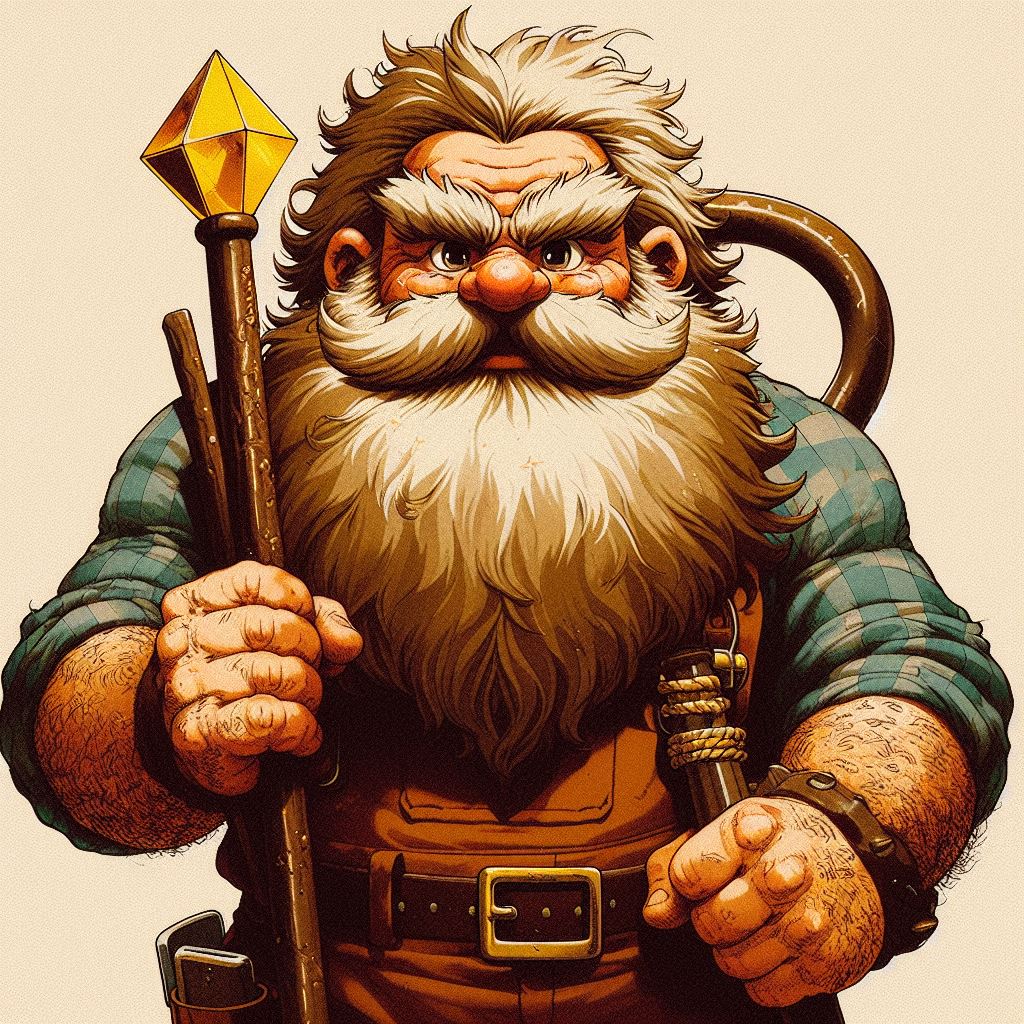
Once only the Archon had a team of engineers. Researchers on the cutting edge of gnode-science. Though the secrets of the Luci-i lab could not be kept for long as the empire began to sell its gnode infused wonders to the world for a profit. Clever consumers reversed engineered their machines and learned to build magi-teck themselves. Some engineers have even gone so far as to build computers, weapons and robots away from the Luci-i’s heavily controlled factories. Though engineers must have a steady supply of gnode or their creations will all fall silent.
Class Features
As an engineer, you gain the following class features:
Hit Points:
Hit Dice: 1d8 per Engineer level
Hit Points at 1st Level: 8 + your Constitution modifier
Hit Points at Higher Levels: ld8 (or 5) + your Constitution modifier per Engineer level after 1st
Proficiencies:
Armour: Light armour, medium armour, shields
Weapons: Simple weapons
Tools: Thieves' tools, tinker's tools, one type of artisan's tools of your choice
Saving Throws: Constitution, Intelligence
Skills: Choose two from Arcana, History, Investigation, Medicine, Nature, Perception, Sleight of Hand
Equipment:
You start with the following equipment, in additionto the equipment granted by your background:
• any two simple weapons of your choice
• a light crossbow and 20 bolts
• your choice of studded leather armor or scale mail
• thieves' tools and a dungeoneer's pack
Gnodic Tinkering:
You've learned how craft magical items with gnode and use the power within to create machines. To use this ability, you must have thieves' tools or artisan's tools in hand. You then touch a Tiny nonmagical object as an action and give it one of the following magical properties of your choice:
• The object sheds bright light in a 5-foot radius and
dim light for an additional 5 feet.
• Whenever tapped by a creature, the object emits a
recorded message that can be heard up to 10 feet
away. You utter the message when you bestow this
property on the object, and the recording can be
no more than 6 seconds long.
• The object continuously emits your choice of an
odor or a nonverbal sound (wind, waves, chirping,
or the like). The chosen phenomenon is perceivable
up to 10 feet away.
• A static visual effect appears on one of the object's surfaces. This effect can be a picture, up to 25 words of text, lines and shapes, or a mixture of these elements, as you like.
The chosen property lasts indefinitely. As an action, you can touch the object and end the property early. You can bestow magic on multiple objects, touching one object each time you use this feature, though a single object can only bear one property at a time. The maximum number of objects you can affect with this feature at one time is equal to your Intelligence modifier (minimum of one object). If you try to exceed your maximum, the oldest property immediately ends, and then the new property applies.
Spellcasting:
You've studied the workings of gnode and how to cast spells, channeling the magic through objects. To observers, you don't appear to be casting spells in a conventional way; you appear to produce wonders from mundane items and outlandish inventions.·
Tools Required:
You produce your Engineer spell effects through your tools. You must have a spellcasting focus-specifically thieves' tools or some kind of artisan's tool-in hand when you cast any spell with this Spellcasting feature (meaning the spell has an "M" component when you cast it). You must be proficient with the tool to use it in this way. See the equipment chapter in the Player's Handbook for descriptions of these tools. After you gain the Infuse Item feature at 2nd level, you can also use any item bearing one of your infusions as a spellcasting focus.
Cantrips:
You know two cantrips of your choice from the Engineer spell list. At higher levels, you learn additional engineer cantrips of your choice, as shown in the Cantrips Known column of the Engineer table. When you gain a level in this class, you can replace one of the engineer cantrips you know with another cantrip from the Engineer spell list
Preparing and Casting Spells:
The Engineer table shows how many spell slots you have to cast your Engineer spells. To cast one of your Engineer spells of 1st level or higher, you must expend a slot of the spell's level or higher. You regain all expended spell slots when you finish a long rest. You prepare the list of Engineer spells that are available for you to cast, choosing from the Engineer spell list. When you do so, choose a number of Engineer spells equal to your Intelligence modifier + half your engineer level, rounded down (minimum of one spell). The spells must be of a level for which you have spell slots. For example, if you are a 5th-level engineer, you have four 1 st-level and two 2nd-level spell slots. With an Intelligence of 14, your list of prepared spells can include four spells of 1st or 2nd level, in any combination. If you prepare the 1 st-level spell cure wounds, you can cast it using a 1st-level or a 2nd-level slot. Casting the spell doesn't remove it from your list of prepared spells. You can change your list of prepared spells when you finish a long rest. Preparing a new list of Engineer spells requires time spent tinkering with your spellcasting focuses: at least 1 minute per spell level for each spell on your list.
Spellcasting Ability:
Intelligence is your spellcasting ability for your Engineer spells; your understanding of the theory behind magic allows you to wield these spells with superior skill. You use your Intelligence whenever an engineer spell refers to your spellcasting ability. In addition, you use your Intelligence modifier when setting the saving throw DC for an Engineer spell you cast and when making an attack roll with one.
Spell save DC = 8 + your proficiency bonus + your Intelligence mod ifier
Spell attack modifier = your proficiency bonus + your Intelligence modifier
Ritual Casting:
You can cast an Engineer spell as a ritual if that spell has the ritual tag and you have the spell prepared.
Infuse Item:
At 2nd level you've gained the ability to imbue mundane items with gnode, turning those objects
into magic items.
Known Infusions:
When you gain this feature, pick four engineer infusions to learn, choosing from the "Engineer Infusions" section at the end of the class's description. You learn additional infusions of your choice when you reach certain levels in this class, as shown in the Infusions Known column of the Engineer table. Whenever you gain a level in this class, you can replace one of the engineer infusions you learned with a new one.
Infusing an Item:
Whenever you finish a long rest, you can touch a nonmagical object and imbue it with one of your engineer infusions, turning it into a magic item. An infusion works on only certain kinds of objects, as specified in the infusion's description. If the item requires attunement, you can attune yourself to it the instant you infuse the item. If you decide to attune to the item later, you must do so using the normal process for attunement. Your infusion remains in an item indefinitely, but when you die, the infusion vanishes after a number of days equal to your Intelligence modifier (minimum of 1 day). The infusion also vanishes if you replace your knowledge of the infusion. You can infuse. more than one nonmagical object at the end of a long rest; the maximum number of objects appears in the Infused Items column of the Engineer table. You must touch each of the objects, and each of your infusions can be in only one object at a time. Moreover, no object can bear more than one of your infusions at a time. If you try to exceed your maximum number of infusions, the oldest infusion ends, and then the new infusion applies. If an infusion ends on an item that contains other things, like a bag of holding, its contents harmlessly appear in and around its space.
Engineer Specialisation:
At 3rd-level you may choose the type of specialist you are: Alchemist, Armorer, Artillerist, or Battle Smith, each of which is detailed after the class's description. Your choice grants you features at 5th level and again at 9th and 15th level.
Right Tool for the Job:
At 3rd-level you've learned how to produce exactly the tool you need: with thieves' tools or artisan's tools in hand, you can magically create one set of artisan's tools in an unoccupied space within 5 feet of you. This creation requires 1 hour of uninterrupted work, which can coincide with a short or long rest. Though the product of magic, the tools are nonmagical, and they vanish when you use this feature again.
Abililty Score Improvement:
When you reach 4th level and again at 8th, 1 2th, 16th, and 1 9th level, you can increase one ability score of your choice by 2, or you can increase two ability scores of your choice by 1. As normal, you can't increase an ability score above 20 using this feature.
Tool Expertise:
At 6th-level your proficiency bonus is now doubled for any ability check you make that uses your proficiency with a tool.
Flash of Genius:
At 7th-level you've gained the ability to come up with solutions under pressure. When you or another creature you can see within 30 feet of you makes an ability check or a saving throw, you can use your reaction to add your Intelligence modifier to the roll. You can use this feature a number of times equal to your Intelligence modifier (minimum of once). You regain all expended uses when you finish a long rest.
Magic Item Adept:
At 10th-level you've achieved a profound understanding of how to use and make magic items:
• You can attune to up to four magic items at once.
• If you craft a magic item with a rarity of commonor uncommon, it takes you a quarter of the normal time, and it costs you half as much of the usual gold.
Spell Storing Item:
At 11th-level you can now store a spell in an object. Whenever you finish a long rest, you can touch one simple or martial weapon or one item that you can use as a spellcasting focus, and you store a spell in it, choosing a 1 st- or 2nd-level spell from the Engineer spells list that requires 1 action to cast (you needn't have it prepared).While holding the object, a creature can take an action to produce the spell's effect from it, using your spellcasting ability modifier. If the spell requires concentration, the creature must concentrate. The spell stays in the object until it's been used a number of times equal to twice your Intelligence modifier (minimum of twice) or until you use this feature again to store a spell in an object.
Magic Item Savant:
At 14th-levelyour skill with magic items deepens:
• You can attune to up to five magic items at once.
• You ignore all class, race, spell, and level requirements on attuning to or using a magic item.
Magic Item Master:
At 18th-level you can now attune to up to six magic items at once.
Soul of the Engineer:
At 20th-level you have developed a mystical connection to your magic items, which you can draw on for protection:
• You gain a +1 bonus to all saving throws per
magic item you are currently attuned to.
• If you're reduced to 0 hit points but not killed outright, you can use your reaction to end one of your engineer infusions, causing you to drop to 1 hit point instead of 0.
Subclasses:
- Chemist: Using the alchemical process you find new ways to bend the power of gnode through chemistry.
- Infuser: Gnode infused items will win the day.
- Physicist: The science of the world can be bent with divine gnode.
- Roboticist: Creating life through brass and gnode.
Gunner

Gunners delve into the art of firearms, mastering the intricate mechanisms that power these ranged weapons. Unlike traditional warriors, who rely on the swing of a blade or the power of spells, Gunners manipulate the raw force of gunpowder and bullets. The core of their power lies in their understanding of the fusion between technology and destructive potential. Gunner's study of their chosen firearms goes beyond mere proficiency. They tinker, craft, and adapt, breathing life into these mechanical instruments. This mastery isn't just about handling weapons; it's a dance of precision and firepower, where every bullet becomes an extension of the Gunner's will.
Class Features
As a gunner, you gain the following class features:
Hit Points:
Hit Dice:1d8 per gunner level
Hit Points at 1st Level: 9 + your Constitution modifier.
Hit Points at Higher Levels: 1d8 + your Constitution modifier per gunner level after 1st.
Proficiencies:
Armour: Light armour
Weapons: Simple weapons, martial ranged weapons, and firearms
Tools: Gunsmith's tools
Saving Throws: Dexterity, Wisdom
Skills: Choose three from Acrobatics, Athletics, Investigation, Perception, Sleight of Hand, and Stealth.
Equipment:
A firearm of your choice (pistol, musket, or rifle)
A set of light armour
Gunsmith's tools
A dungeoneer's pack or an explorer’s pack
20 rounds of ammunition for the firearm
Firearm Proficiency: As a Gunner, your character is proficient with firearms, granting them an advantage in wielding and maintaining these weapons.
Gun Slinger: Your character has honed their skill with firearms, granting them a +2 bonus to attack rolls made with ranged weapons, including their chosen firearm.
Marksman's Aim: At 1st level, your character gains the Marksman's Aim feature, allowing them to add their Wisdom modifier to the damage rolls of their firearm attacks.
Deadeye: At 2nd level, your character can focus their aim, allowing them to reroll any 1s or 2s on the damage rolls of their firearm attacks. they must keep the second roll.
Gunslinger's Action: At 3rd level, your character gains the ability to use their bonus action to make an additional firearm attack. This feature improves as they gain levels:
6th level: Your character can make two additional firearm attacks with their bonus action.
10th level: Your character can make three additional firearm attacks with their bonus action.
15th level: Your character can make four additional firearm attacks with their bonus action.
Rapid Reload: At 6th level, your character can reload their firearm as a bonus action, allowing them to maintain a steady barrage of shots during combat.
Gunmaster: At 10th level, your character gains proficiency with all firearms, and their firearm attacks ignore half and three-quarters cover.
Vengeful Shot: At 14th level, your character can make a vengeful shot once per short rest. When they make this attack, they gain advantage on the attack roll, and it deals an extra 4d8 damage.
Deadshot: At 18th level, your character becomes a master of their firearm. they can use their action to make a Deadshot attack. This attack is made with advantage, and it ignores any damage resistance or immunity the target may have. Once they use this feature, they cannot do so again until they complete a long rest.
Subclasses:
Gunslinger Specialist
Sharpshooter: At 3rd level, your character gains the Sharpshooter feat, which allows them to make long-range shots without disadvantage and deal extra damage with their firearm attacks by taking a penalty to their attack roll.
Evasive Dodge: At 7th level, your character can use their reaction to gain a +5 bonus to AC against one ranged attack that would hit them.
Disabling Shot: Starting at 11th level, your character can make a Disabling Shot once per short rest. When they make this attack, they can target a specific body part of their enemy (arm, leg, etc.). On a successful hit, the target must make a Constitution saving throw (DC equal to 8 + your character's proficiency bonus + their Wisdom modifier) or suffer disadvantage on attack rolls, ability checks, and saving throws using that body part for 1 minute. The target can repeat the saving throw at the end of each of its turns to end the effect.
Explosive Specialist
Explosive Ammo: At 3rd level, your character gains the ability to craft and use explosive ammunition for their firearms. When they make an attack with explosive ammo, it deals additional fire damage to the target and all creatures within 10 feet of it.
Evasion: At 7th level, your character gains the Evasion feature, which allows them to take no damage if they succeed on a Dexterity saving throw that would normally halve the damage on a successful save.
Explosive Barrage: Starting at 11th level, your character can use their action to launch an explosive barrage once per short rest. When they do so, they unleash a hail of explosive bullets in a 20-foot cone. All creatures in the area must make a Dexterity saving throw (DC equal to 8 + your character's proficiency bonus + their Wisdom modifier). On a failed save, they take 8d6 fire damage, or half as much damage on a successful save.
Elemental Artillerist
Elemental Bullets: Starting at 3rd level, the Elemental Artillerist gains the ability to craft special elemental bullets during a short rest. Each time the Gunner finishes a short rest, they can create a number of elemental bullets equal to their Wisdom modifier (minimum of 1). These bullets can be imbued with one of the following elemental effects:
Fire Bullet: The target hit by this bullet takes an additional 1d6 fire damage.
Frost Bullet: The target hit by this bullet takes an additional 1d6 cold damage and its speed is reduced by 10 feet until the end of its next turn.
Shock Bullet: The target hit by this bullet takes an additional 1d6 lightning damage, and the Gunner can choose to give the bullet a slight homing effect, allowing it to curve slightly towards the target.
Wind Bullet: The target hit by this bullet takes an additional 1d6 force damage, and the Gunner can choose to push the target 10 feet directly away from the Gunner.
The elemental effects of these bullets last until the start of the Gunner's next turn.
Elemental Fusillade: At 7th level, the Elemental Artillerist gains the ability to imbue their firearm with elemental energy, empowering all their shots. When the Gunner uses their action to make multiple attacks with their firearm, they can expend one or more elemental bullets before making the attack rolls. For each elemental bullet expended, one attack in the attack action gains the corresponding elemental effect. The elemental effect applies only to the target of that specific attack.
For example, if the Gunner has three elemental bullets (fire, frost, and shock) and makes three attacks as part of their action, they can choose to expend the fire bullet on the first attack, the frost bullet on the second attack, and the shock bullet on the third attack.
Elemental Mastery: At 11th level, the Elemental Artillerist's understanding of elemental forces grows. When using Elemental Bullets, the additional damage they deal increases to 2d6. Additionally, the elemental effects of their bullets now last until the end of the target's next turn, allowing them to set up powerful combos with their allies.
Elemental Overcharge
At 15th level, the Elemental Artillerist reaches the pinnacle of their power. Once per long rest, they can perform an Elemental Overcharge. When using this ability, the Gunner infuses all of their remaining elemental bullets into a single shot, creating a devastating elemental attack. The Gunner makes a single attack with their firearm, and it gains all the effects of the expended elemental bullets.
For example, if the Gunner has three elemental bullets (fire, frost, and shock) remaining, they can use Elemental Overcharge to deal an additional 3d6 damage of fire, 3d6 damage of cold, and 3d6 damage of lightning, all in one massive attack.
Knight
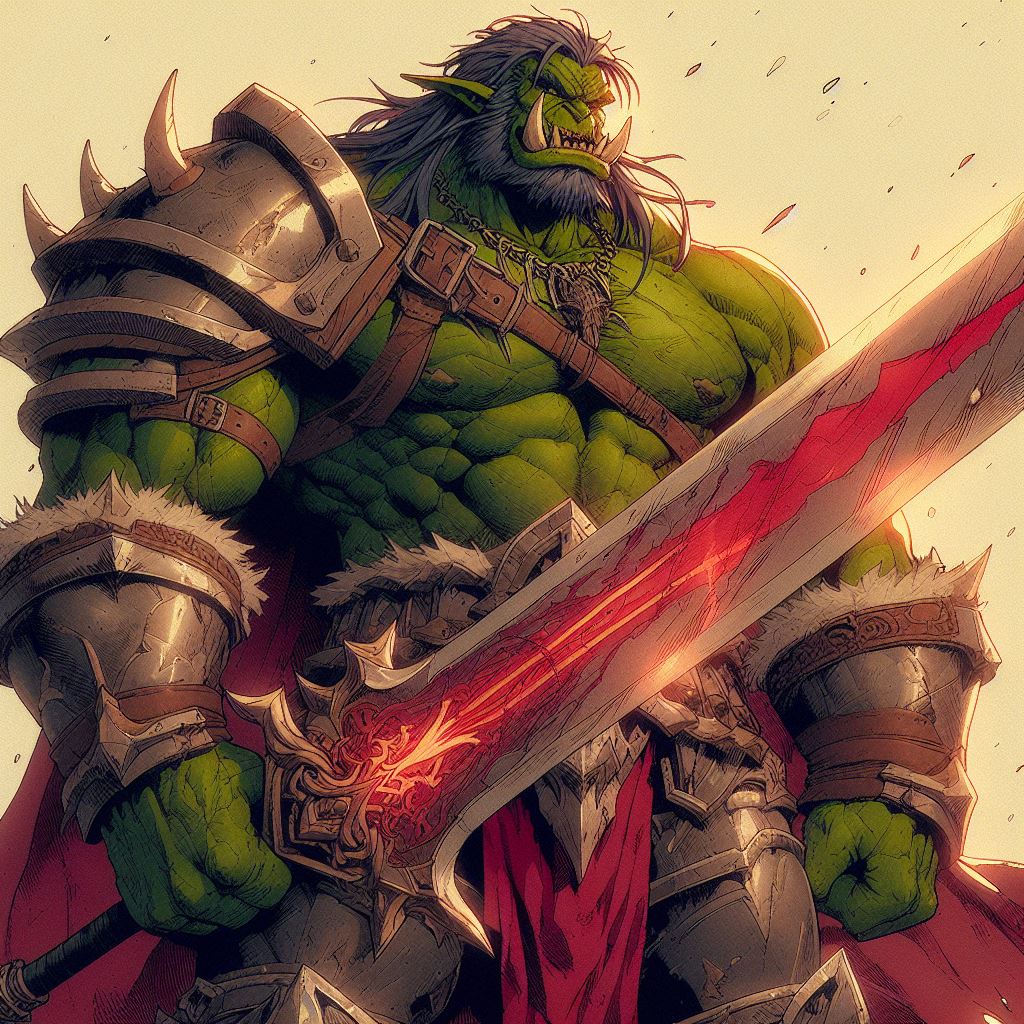
PALADIN
Mage

SORCEROR
Martial Artist

MONK
Muse

BARD
Sage

DRUID
Savage

BARBARIAN
Scholar
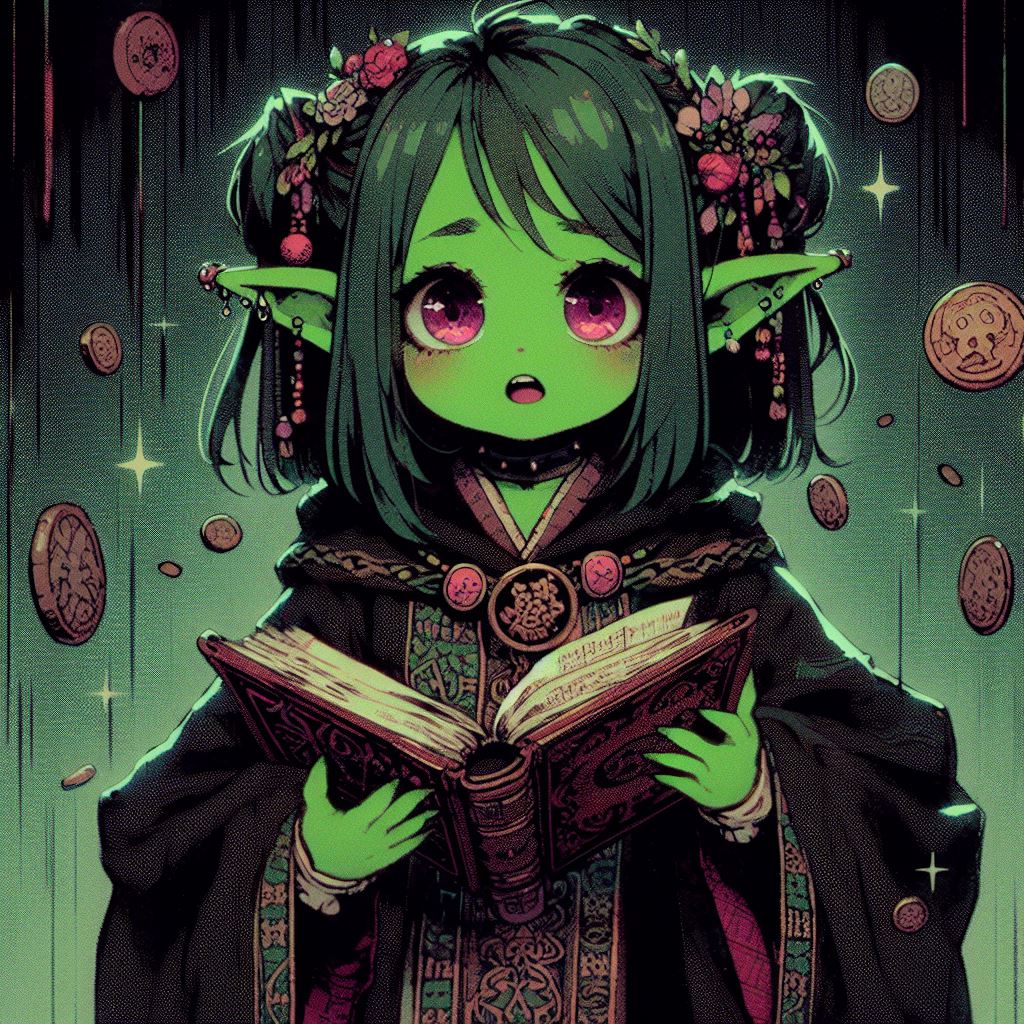
WIZARD
Summoner
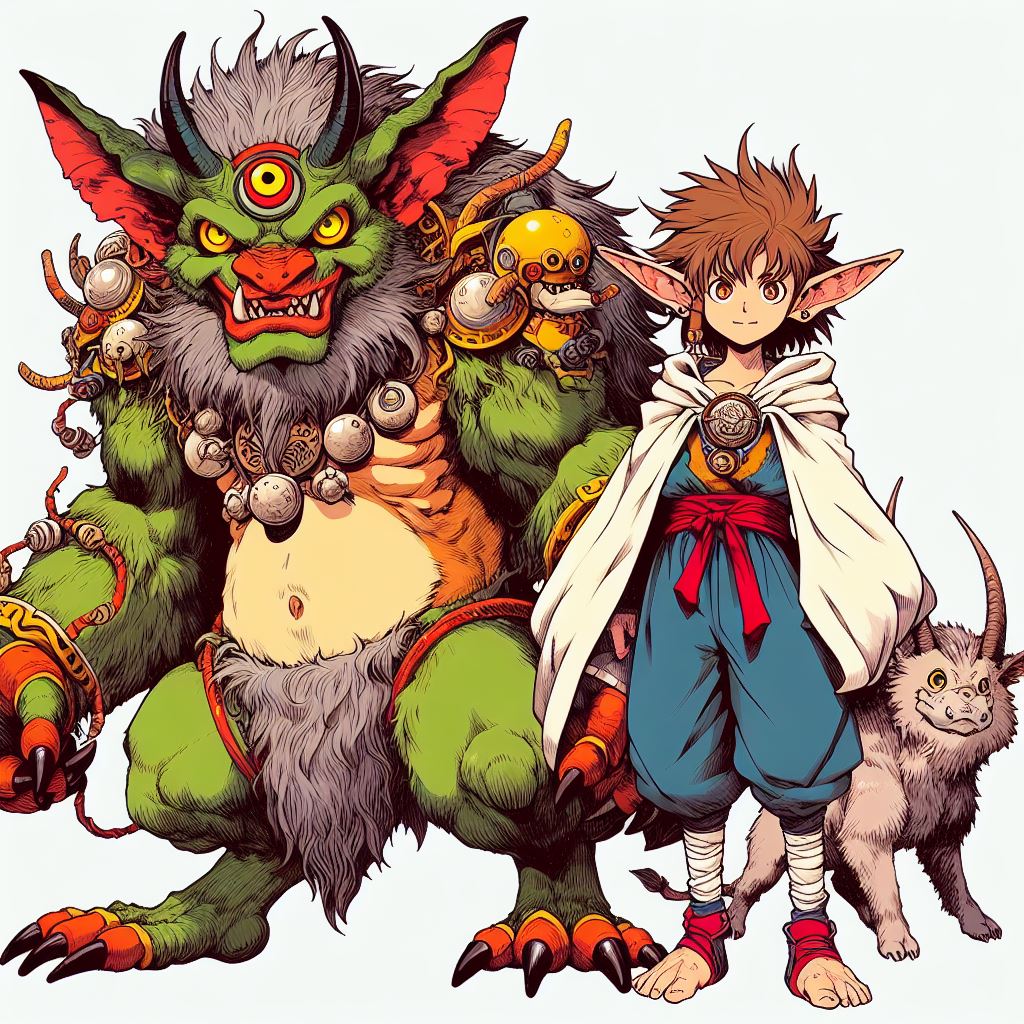
Class Features As a Summoner, you gain the following class features. Hit Points: Hit Dice: 1d6 per Summoner level Hit Points at 1st Level: 6 + your Constitution modifier Hit Points at Higher Levels: 1d6 (or 4) + your Constitution modifier per Summoner level after 1st Proficiencies: Armour: None Weapons: Simple weapons Tools: None Saving Throws: Constitution, Charisma Skills: Choose three from Arcana, Insight, Nature, Perception, Persuasion, and Survival Equipment: A simple weapon of your choice A component pouch or an arcane focus Scholar's pack or explorer’s pack A spellbook containing Summoner cantrips and 1st-level spells Summoning Proficiency: As a Summoner, you are proficient in summoning spells and can cast them with expertise. Summoning spells are considered your domain, granting you an advantage in summoning and controlling summoned creatures. Summoning Focus: Your proficiency with summoning allows you to summon creatures more efficiently. Starting at 1st level, the duration of your summoned creatures' abilities increases by 1 round. Summoner's Pact: At 1st level, you forge a pact with a powerful extraplanar being, granting you the ability to summon creatures and channel their powers. Choose one of the following pacts: Pact of the Celestial: You forge a pact with a celestial being, gaining the ability to summon creatures from the celestial realms. Pact of the Elemental: You form a bond with an elemental entity, granting you the power to summon elemental creatures. Pact of the Fiend: You make a pact with a fiendish entity, allowing you to summon creatures from the infernal planes. Your choice grants you features at 1st level and again at 6th, 10th, and 14th level. Summoner's Call: At 2nd level, you gain the ability to summon creatures to aid you in battle or perform tasks. You can cast summoning spells from the Summoner spell list without expending a spell slot once per short rest. Summoner's Resilience: Starting at 2nd level, you gain proficiency in Constitution saving throws, and your summoned creatures have resistance to non-magical damage. Augmented Summons: At 6th level, your summoned creatures become more powerful. When you cast a summoning spell, the summoned creatures gain temporary hit points equal to your Summoner level and their attacks are considered magical for the purpose of overcoming resistances. Master Summoner: Starting at 10th level, you can maintain concentration on one additional summoning spell at a time. Additionally, when you summon creatures using a spell slot, they gain additional hit points equal to your Charisma modifier. Empowered Summons: At 14th level, your summoned creatures become truly formidable. Whenever you summon a creature using a summoning spell, it gains a bonus to attack rolls and damage rolls equal to your Charisma modifier. Summoner Subclasses Pact of the Celestial Healing Presence: At 1st level, you gain the ability to channel the healing energy of celestial beings. As an action, you can touch a creature and restore hit points equal to your Summoner level. Once you use this feature, you must finish a short or long rest before you can use it again. Celestial Intervention: Starting at 6th level, when you summon celestial creatures, they gain an additional ability based on their celestial nature. For example, a summoned celestial might have the ability to heal allies within a certain radius or grant temporary hit points. Divine Bond: At 10th level, you form a deeper bond with your celestial patron. You can cast the spell "Divine Intervention" once per long rest without expending a spell slot. Additionally, your summoned celestial creatures gain resistance to necrotic damage. Celestial Ascendance: At 14th level, you achieve a higher state of celestial power. Once per long rest, you can transform into a celestial being for 1 minute. While transformed, you gain flight and your attacks deal radiant damage. Additionally, you emit an aura of healing energy, restoring hit points to all allies within 30 feet of you at the start of their turns. Pact of the Elemental Elemental Familiar: At 1st level, you gain the ability to summon an elemental familiar to assist you. Your familiar can take the form of a small elemental creature and follows your commands. It acts on your initiative and can take various actions in and out of combat. Elemental Augmentation: Starting at 6th level, when you summon elemental creatures, they gain additional abilities based on their elemental nature. For example, a summoned fire elemental might ignite enemies it hits, dealing ongoing fire damage. Elemental Mastery: At 10th level, you gain mastery over the elements. You can cast "Control Weather" once per long rest without expending a spell slot. Additionally, your summoned elemental creatures gain resistance to their associated damage type. Elemental Convergence: At 14th level, you can summon a powerful elemental convergence once per long rest. This convergence summons a massive elemental entity that wreaks havoc on your enemies. The elemental convergence lasts for 1 minute and attacks all enemies within its range, dealing significant damage. Pact of the Fiend Infernal Pact: At 1st level, you gain the ability to summon fiendish creatures to serve you. These creatures are bound to your will and follow your commands without question. Fiendish Resilience: Starting at 6th level, when you summon fiendish creatures, they gain additional hit points equal to your Summoner level. Additionally, they have advantage on saving throws against spells and other magical effects. Fiendish Empowerment: At 10th level, you gain the ability to empower your fiendish minions. Once per short rest, when a fiendish creature you summon deals damage with an attack, it deals additional fire damage equal to your Charisma modifier. Infernal Dominion: At 14th level, you gain control over powerful fiendish forces. Once per long rest, you can summon an infernal legion to aid you in battle. This legion consists of multiple fiendish creatures, each under your control for 1 hour or until dismissed.
Thief
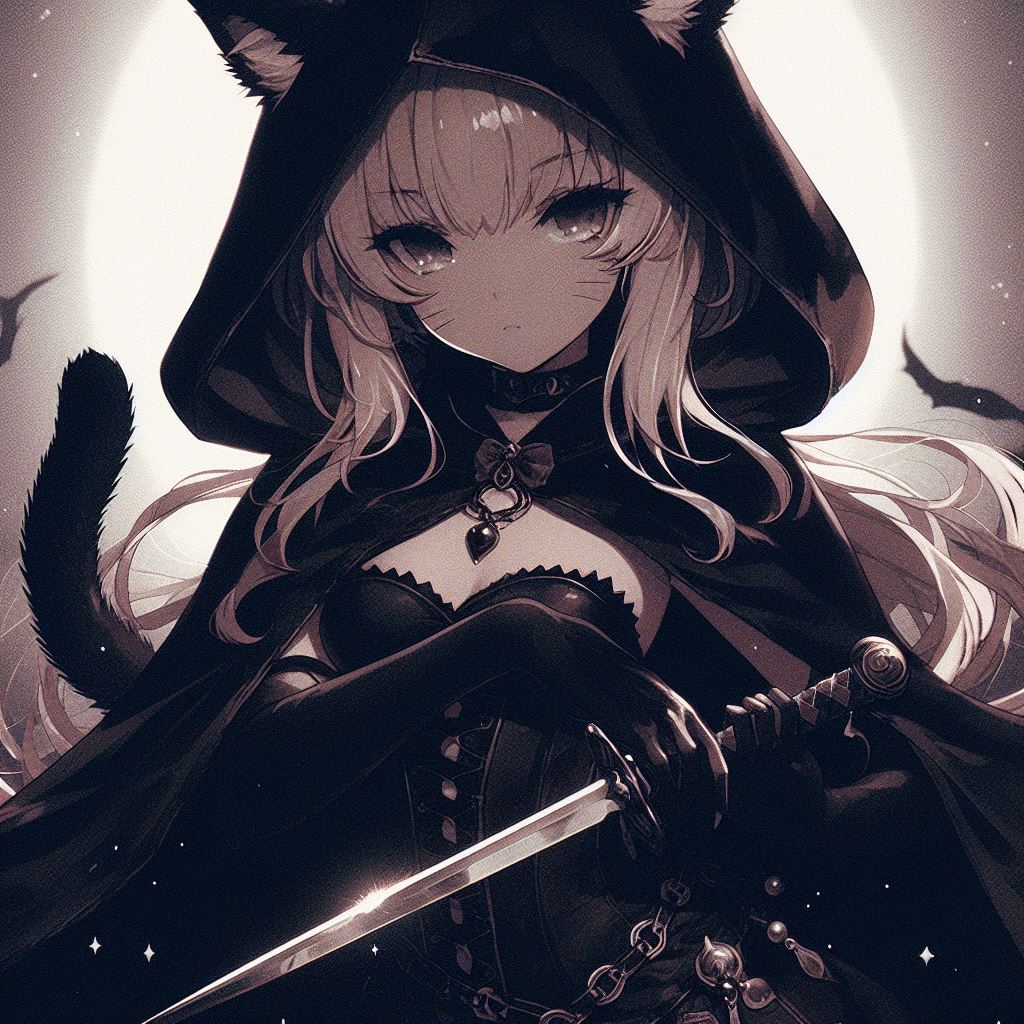
ROGUE
Warrior

FIGHTER